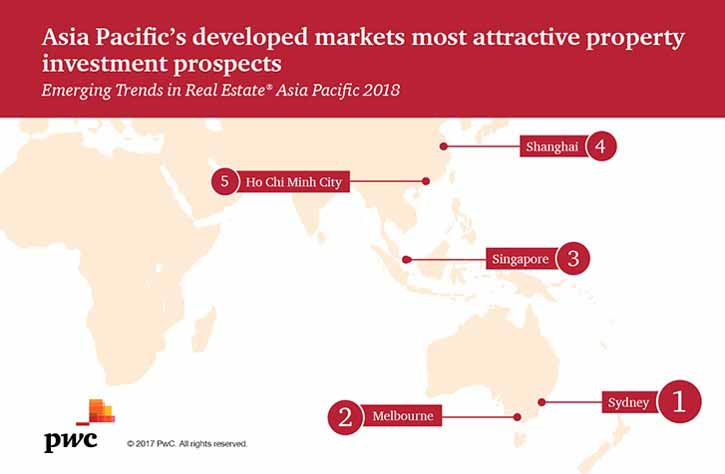The Trump-Kim Summit in Singapore is expected to increase the ever-growing flows of capital to pour into Singapore’s real estate market, causing it to reach unprecedented levels. International publications are saying that Singapore was chosen as the venue for the Summit because it is a ‘boring’ city. But ‘boring’ is not necessarily bad.
The South China Morning Post describes Singapore’s ‘boringness’ as such:
“The Southeast Asian financial hub was likely chosen for its stability, neutrality, security advantages and track record of hosting international summits, observers say. The ultra-modern city state has a robust security infrastructure and is widely considered one of the safest cities in Asia. It has tight restrictions over media and public gatherings, which will allow for a controlled environment likely to be preferred by the North Koreans. As far as the attendees are likely concerned, Singapore’s reputation as being dull is a definite plus.”
That could be one big reason for the President of the United States of America to choose Singapore as the venue for his June 12 Summit with the North Supreme Leader; and for the North Korean leader to agree to the venue.
In any case, this is not the first time Singapore has been chosen as the venue for high-profile Summits between leaders of States which have difficult relationships with one another.
On 7 November 2015, Ma Ying-jeou, president of the Republic of China (Taiwan; ROC), and Xi Jinping, General Secretary of the Communist Party of China and President of the People’s Republic of China (Mainland China; PRC), met in Singapore. The meeting was the first between the political leaders of the two sides of the Taiwan Strait since the end of the Chinese Civil War in 1950 and the first since the meeting between Chiang Kai-shek and Mao Zedong in Chongqing during the Double Tenth Agreement in August 1945.
The international spotlight on Singapore as being a safe and ‘boring’ city is good for the country, especially for its efforts to draw in investment dollars in a competitive environment- especially real estate investment dollars.
The Emerging Trends in Real Estate Asia Pacific 2018 report jointly published by Urban Land Institute (ULI) and PwC already ranks Singapore in third place this year.

The report said: “Of all the various influences that have combined to shape recent investment flows into Asian real estate, one continues to stand out: excess liquidity. Local sovereign and institutional funds bearing vast stockpiles of accumulated cash are investing it increasingly in property, both regionally and globally. The resulting competition for assets is changing the industry in fundamental and often unexpected ways.”
The Trump-Kim Summit is expected to lend more optimism to investors who are betting in the resurgence of Singapore, believing that the markets here have bottomed after several years of weakness.
And news that China’s President Xi Jinping may also travel to Singapore for the unprecedented summit on June 12 will only add more optimism to investors who look to grow their monies in safe havens. Chinese businesses are already expanding their global footprint through targeting emerging markets, acquiring overseas firms and making strategic investments in new technologies.
For Chinese investors, Singapore is not only Asia’s most stable and transparent market and a global financial services hub, but it is also viewed as having strong links to China with good geographical positioning to act as a gateway into Southeast Asia.
Singapore property market may be distorted by cash-rich Chinese developers
There are however some concerns in certain quarters that the excess funds flowing into the Republic is invariably distorting the Singapore real estate market.
Chinese property developers have bid aggressively for Government Land Sales (GLS), which ramps up government coffers, but may be bad news for the Singapore property market and home-buyers, as additional costs may be headed their way.
There is fear that as land bids go up, so will prices for homes. A well known commentator on financial matters, Ryan Ong, previously explained how funds from foreign investors were distorting the Singapore real estate market:
“Higher prices in private property are fine, if they are a result of a growing economy. But that’s not the case – the current situation is one of foreign companies muscling in with deep pockets, and distorting the Singapore property market. Singaporeans who have long saved up to upgrade, or hope for their children to be able to do so, will suffer at the hands of rising property prices. Note that this isn’t just an issue in the newly developed condos: there’s a strong chance of a knock-on effect, as even older private properties will probably see their prices rise in tandem.
“Also, remember that the private property market is not totally divorced from public housing. As more Singaporeans are priced out of the private market, there will be further demand for public housing (such as resale flats). Increased demand, of course, leads to increased prices.”
The ULI-PwC report confirms this view: “The residential sector is also showing signs of bottoming, with rising transactions and a slight uptick in pricing for the first time in four years. Driven by buoyant sentiment, sales of developer sites have surged amid tightening supply as developers add to land banks. The rebound seems likely to be sustainable, given the momentum of several years’ worth of pent-up consumer demand. Chinese developers have been especially active in buying land, pushing up land auction prices for residential sites significantly through 2017.”
—
If you are home-hunting, our Panel of Property agents and the mortgage consultants at icompareloan.com can help you with affordability assessment and a promotional home loan. Just email our chief mortgage consultant, Paul Ho, with your name, email and phone number at [email protected] for a free assessment.
